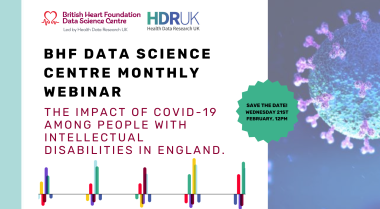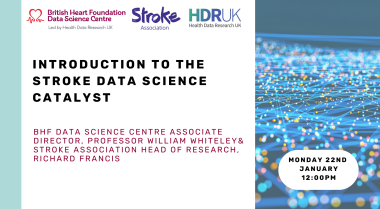How unlocking health data shaped the COVID-19 vaccine rollout
16 February 2023
Research enabled by HDR UK has played a significant role in the study of COVID-19 vaccine effectiveness and side effects.
Challenge
In December 2020, the Pfizer-BioNTech and Oxford-AstraZeneca vaccines against COVID-19 were approved for use in the UK. While these vaccines had been thoroughly tested in clinical trials involving tens of thousands of people, it was vital to understand how they performed in the wider population.
The unprecedented speed of the vaccine development and rollout meant that researchers needed to act quickly for their work to inform public policy.
Solution
Concerns around real-world vaccine efficacy and safety could only be addressed by examining large data collections, which have historically been difficult to access and study. The infrastructure and collaborations put in place through HDR UK meant that UK researchers were well-placed to quickly help policymakers and the public understand the benefits and risks of the COVID-19 vaccines.
An exemplar is work led by the BREATHE Health Data Research Hub, which created a national data infrastructure that linked vaccination, primary care, COVID-19 testing, hospitalisation and mortality records for 99% of the Scottish population. The team, which included Aziz Sheikh and Colin Simpson, took just five to six weeks to carry out peer-reviewed research into:
- Whether COVID-19 vaccines are effective at reducing hospital admissions following the first and second doses, at the population level in a real-world setting – using patient data from over 5.4 million people in Scotland to investigate the association between mass rollout of COVID-19 vaccines and risk of hospital admissions due to COVID-19 (Vasileiou et al 2021).
- Patient-reported problems from 2.53 million (57.5%) of the Scottish population. This covered the 1.71 million who had received the Oxford-AstraZeneca and 0.82 million who received the Pfizer-BioNTech vaccine. Their work covered idiopathic thrombocytopenic purpura (ITP), venous thromboembolic, arterial thromboembolic and haemorrhagic events (Simpson et al 2021).
- The risk of COVID-19 hospital admissions in children aged 5–17 years with markers of uncontrolled asthma – and whether children with asthma should be vaccinated against COVID-19. This study included data from >750,000 children aged 5-17.
Impact and outcomes
The timely work described here has informed policymakers, vaccine advisory bodies, and regulatory agencies.
Results showing the high protection offered by the Oxford-AstraZeneca and Pfizer-BioNTech vaccines after a single dose, even for people over 80, provided confidence in the continuing UK rollout and lifting of UK lockdown restrictions. This work also influenced regulation in Canada, Denmark, France and Germany and led to the extension of vaccinations to older people.
Similarly, the research team reported its initial findings of increased risk of thromboembolic and haemorrhage events following Oxford-AstraZeneca vaccine to policymakers. This helped them to develop precautions to protect those who might be at risk – including revision to safety information on the Oxford-AstraZeneca vaccine.
Lastly, findings that children with uncontrolled asthma are at an increased (3–6 times higher) risk of COVID19 hospital admission compared with those without asthma served as the evidence- base to extend COVID19 vaccines to children aged 12-15 with poorly controlled asthma. Over 25 publications on COVID-19 vaccine safety and effectiveness have been enabled by HDR UK including:
- Risk of thrombocytopenia and thromboembolism after covid-19 vaccination and SARS-CoV-2 positive testing: self-controlled case series study
- Sociodemographic inequality in COVID-19 vaccination coverage amongst elderly adults in England: a national linked data study
- Association of COVID-19 vaccines ChAdOx1 and BNT162b2 with major venous, arterial, and thrombocytopenic events: whole population cohort study in 46 million adults in England
- Risk prediction of covid-19 related death and hospital admission in adults after covid-19 vaccination: national prospective cohort study
- Impact of Delta on viral burden and vaccine effectiveness against new SARS-CoV-2 infections in the UK



